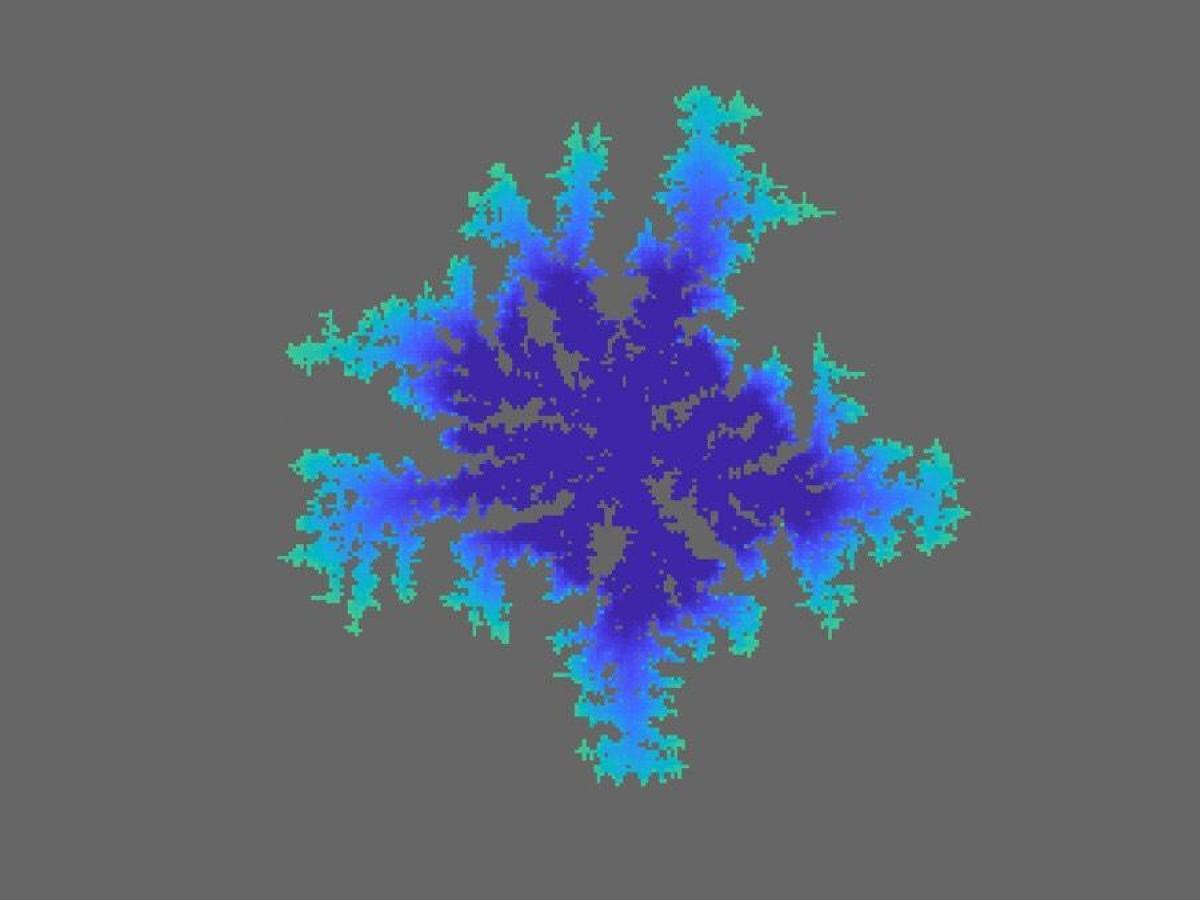Dynamics Modelling and Computation
Dynamics, Modelling and Computation research involves mathematically modelling problems in biology, chemistry, ecology, geophysics, materials science and many other areas of science and engineering.

Mathematical model of a microbial colony. The direction of cell growth depends on the nutrient level, with lighter cells having greater directional bias.
Our Dynamics, Modelling and Computation research group provides valuable insights and accurate predictions that advance industry and empower researchers in numerous disciplines.
We are particularly focused on real-world industrial, scientific and engineering problems.
Our expertise includes:
- developing models using differential equations
- classical mechanics, particularly in fluid dynamics
- applying and developing solution methods, ranging from analytical (e.g., based on asymptotic theories) to numerical (e.g., computational fluid dynamics)
-
Research impact
Our research is highly interdisciplinary, and of great relevance and benefit to numerous industries. We are involved in multiple research collaborations with colleagues from a variety of fields, such as medicine, biology, oceanography, nanotechnology, glaciology and industry.
Some of these projects include:
- understanding spatial structures in colorectal (bowel) cancer
- developing coupled fire–atmosphere models of bushfire spread
- enhancing electrospray ionisation sensitivity in mass spectrometry
- designing operationally viable ocean-wave-energy-converter farms
- modelling suspension flows along curved geometries
- advancing mathematical methods for modern glass and fibre technology
- engineering floating liquid marbles for three-dimensional cell cultures
- modelling Antarctic sea ice
Our work has led to many high-impact discoveries in real-word problems.
Highlights include:
- providing evidence that catastrophic Antarctic ice shelf disintegration is triggered by sea-ice loss and wave impact
- demonstrating mathematical models’ ability to predict diffusion-limited growth within a microbial colony
- showing that optical fibres’ geometry is significantly affected by surface tension present during their drawing process
-
Lead researchers
Research team Expertise Associate Professor Sanjeeva Balasuriya Dynamical systems; fluid mechanics; mathematical modelling Associate Professor Benjamin Binder Agent-based and continuum models; free-surface flows; mathematical biology Professor Yvonne Stokes Fluid dynamics; free and moving boundary problems; mathematical biology Dr Edward Green Mathematical biology; fluid mechanics; reaction-diffusion equations Dr Trent Mattner Turbulent flows; large-eddy simulation; vortical flows Dr Michael Chen Mathematical biology, fluid mechanics, asymptotic methods, data science Dr Chantelle Blachut Coherent structures in geophysical flows; anomalous activity in time dependent dynamical systems Dr Daniel Netherwood Mathematical biology; fluid–structure interaction; asymptotic modelling Dr Samuel Jelbart Dynamical systems, geometric singular perturbation theory, mathematical biology -
Consulting services
We are available to advise or lead public- and private-sector projects involving:
- mathematically and numerically modelling real-world problems involving dynamics
- analysing models and solution methodology.
To enquire about consulting or working with us on a research project, please contact our lead researcher:
Edward Green
Associate Professor, School of Computer and Mathematical Sciences -
Collaboration
We collaborate with various industry and government organisations, including:
- Australian Antarctic Division
- CSIRO
- Defence Science and Technology (DST) Group
- Imperial College London (UK)
- Trajan Scientific and Medical
- Victoria University of Wellington (NZ)
- University of Birmingham (UK)
- University of California (USA)
- University of Cambridge (UK)
- University of East Anglia (UK)
- University of Nottingham (UK)
- University of Augsburg (Germany)
- Shanghai Jiao Tong University (China)
Higher degree by research opportunities
Whether you intend to work in research or industry, a higher degree by research can give you a competitive edge throughout your career.
Find out more about studying a Master of Philosophy Master of Philosophy (MPhil) or Doctor of Philosophy (PhD).

